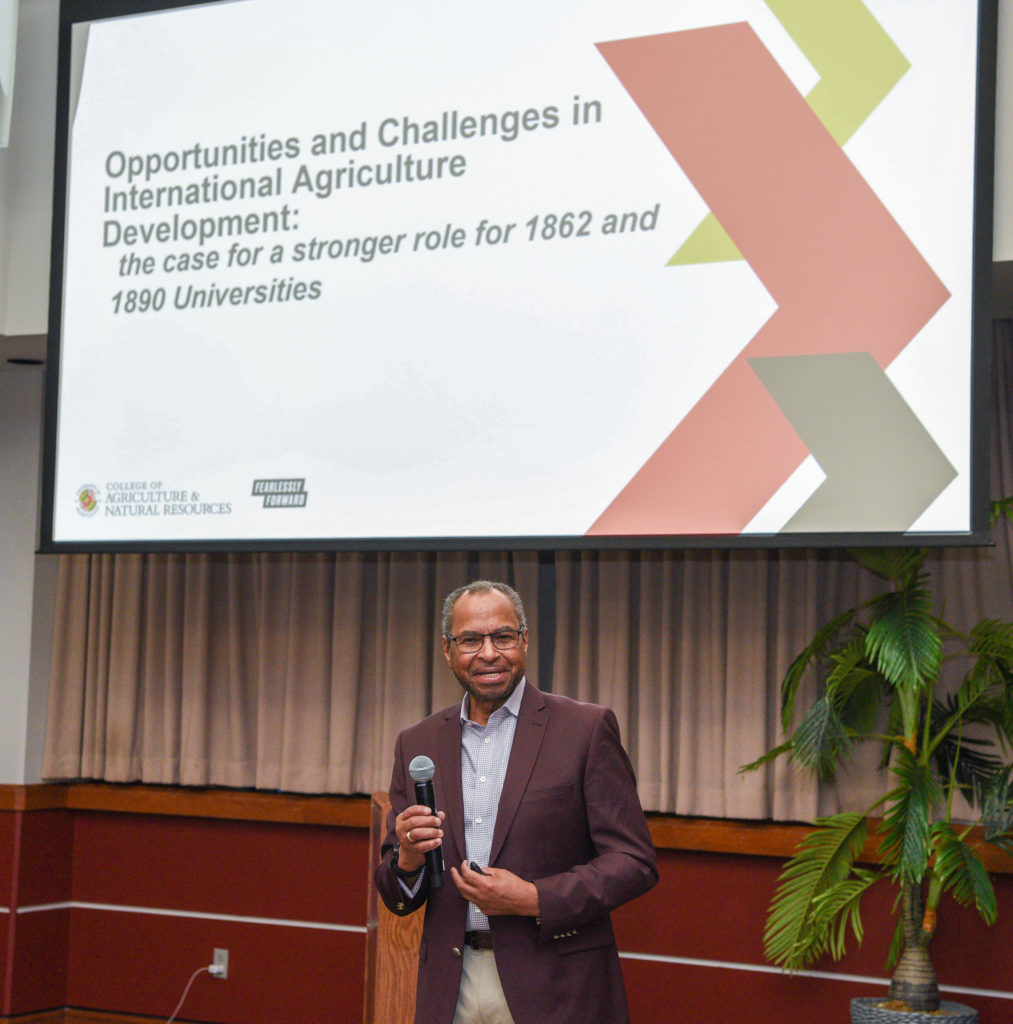
“There is very little difference between national and global problems” was the message Dr. Jimmy W. Smith, an expert in international agriculture, delivered to some 50 lecture guests April 5 at the University of Maryland Eastern Shore’s School of Agricultural and Natural Sciences Seminar Series.
He continued, saying, “Food shortages in any place drive up poverty (rates) and prices everywhere.”
Smith, who recently assumed his post as director of international programs in agriculture and natural resources at the University of Maryland, College Park, oversees the college’s international extension and development efforts. He said that by 2050 there will be a population increase of 10 billion.
“We need 56% more food produced than we are now,” Smith said, who prior to his post with UMCP, served as director general of the International Livestock Research Institute charged with working toward a “food secure world.” The market for U.S. farmers, he suggested, is in the developing world where demand is growing. Global food should be treated as “a core business, not an add-on.”
“In order to protect U.S. agriculture and U.S. health, we need collective action,” Smith said referring to the costs to society of zoonotic diseases (those that can be transmitted to humans from animals), pandemics and climate change. Problems need to be mitigated before they cross borders that can’t “just be shut down.”
“Global health depends on global action. Individual countries cannot handle it alone,” the Guyanese and Canadian dual citizen said. “The world is one big village. The students here (at the University of Maryland Eastern Shore) will become citizens of the world. This is an open opportunity for us to be global citizens.”
Smith’s presentation was titled, “Opportunities and Challenges in International Agriculture Development” with a focus on “The Case for a Stronger Role for 1862 and 1890 Universities.” He earned master’s and doctoral degrees in animal sciences at the University of Illinois at Urbana-Champaign.
The School of Agricultural and Natural Sciences Seminar Series is free and open to the campus and the community. For future lectures, visit www.umes.edu/sans/sans-seminar-series/
Laura Sileo and Gail Stephens, agricultural communications, UMES Extension, University of Maryland Eastern Shore, School of Agricultural and Natural Sciences, 410-621-3850, lcsileo@umes.edu, gcstephens@umes.edu
Photos by Todd Dudek, agricultural communications, University of Maryland Eastern Shore, School of Agricultural and Natural Sciences, tdudek@umes.edu

